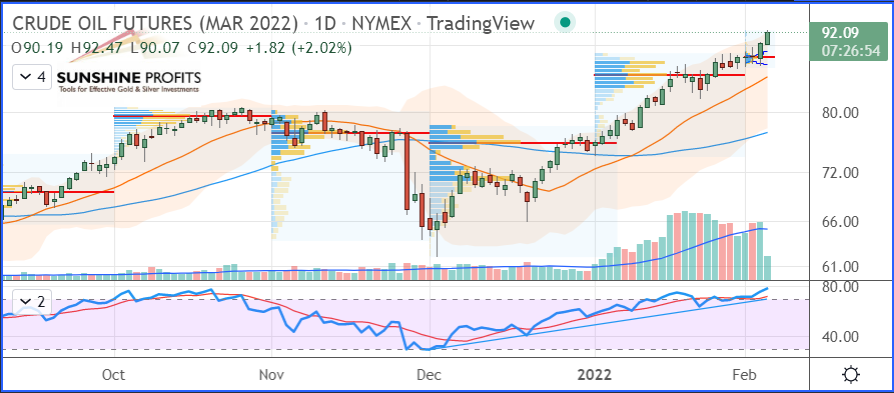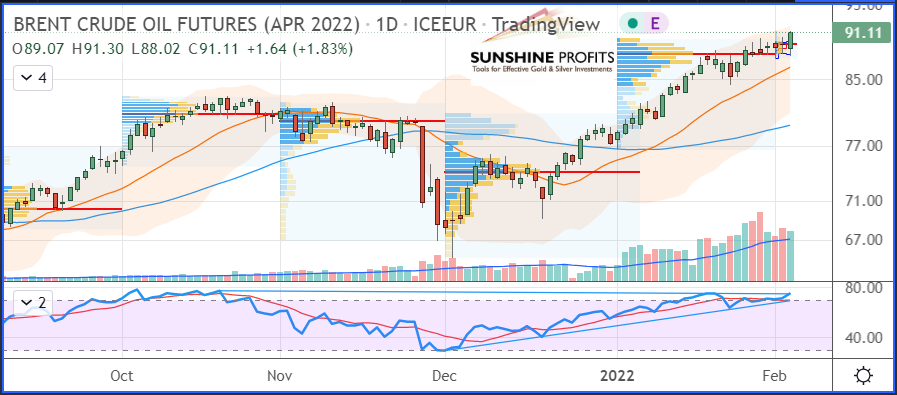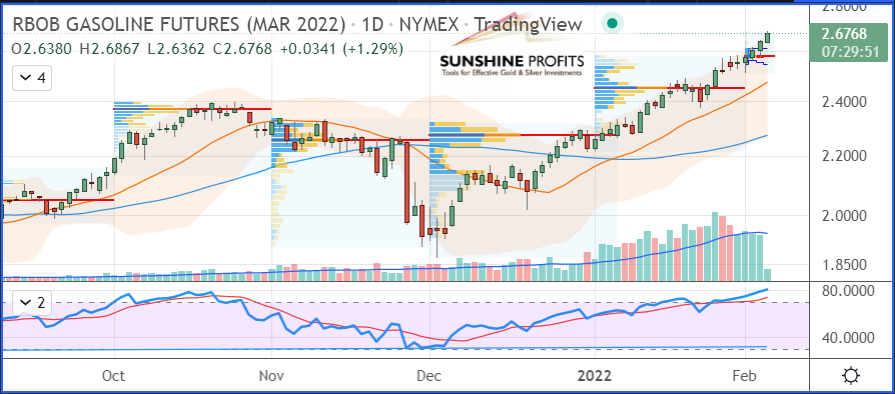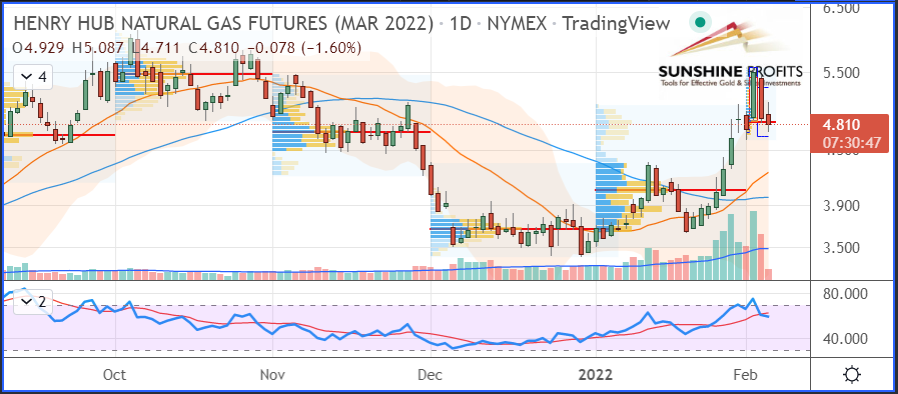While everyone is criticizing Russia, it’s easy to follow the U.S. ‘savior’ narrative. However, what if we looked at what’s happening with oil?
Disclaimer to today’s article: I’m providing this analysis from a pure energy-focused perspective. I do not claim it represents the right view, but rather one of those that won’t be as visible in the mainstream. It is interesting to add different views as pieces of the same puzzle.
Several port facilities in Germany, the Netherlands and Belgium have been the target of cyber attacks, prompting the judicial authorities to investigate the suspicions of extortion of funds at the expense of German operators in the oil sector. Indeed, it would appear that this series of computer hackings that began several days ago primarily concerns oil terminals. This is disrupting deliveries in several major European ports against a backdrop of soaring energy prices.
After jumping the day before, thanks to the strengthening of the euro against the U.S. dollar induced by ECB President Christine Lagarde, oil prices continued to rise during the European session on Friday. Consequently, the fall in the greenback came on top of the recovery in demand, the fall in U.S. crude inventories and the disruptions in supply to boost the price of black gold on the climb. This pushed the two crude benchmarks above the psychological mark of $90 a barrel, galvanized by solid demand and tensions on the offer coming from (geo-)political risks.
Who Is Provoking Who?
The situation is rather complex on the geopolitical scene, with the U.S. claiming that Russia is planning an invasion in Ukraine, whereas the U.S. under NATO cover sent additional troops to Eastern Europe. The question that may arise here is: Who is provoking who? So far, we haven’t seen Russia placing troops in Mexico, on the border with the United States. On the other hand, the Biden administration may encounter difficulties in accepting that the Kremlin can agree to various partnerships with its European neighbors, especially regarding more favorable energy supplies. Instead, it’s in the U.S. interest to weaken those diplomatic relations, potentially leading to additional partnerships that may arise between the EU and Putin.
And as we see the U.S.-led narrative getting through the Western mainstream media with more aggressive, suspicious and tense tones towards Russia, this obviously has the effect of pouring some oil on the Russian-Ukrainian fire. Furthermore, the U.S. needs reasons to demonstrate that NATO is still alive and relevant, while a number of countries are now questioning their own participation in the U.S.-led military organization created in 1949, even going so far as to show some doubts regarding its current motivations.
Isolating The Russian Bear
By maintaining a hostile tone towards Russia’s intentions, the U.S. is consequently trying to isolate the Russian bear and push its European partners to blindly follow the “official narrative” (as the EU being part of NATO), which could possibly lead to new sanctions on Russia, the latter being able to retaliate by using its energy assets and capacities to deprive the EU of the Russian supplies, which currently on the gas side represent between 30% and 40% of total gas imports for Europe. Then, as a result, the Americans could start exporting more gas into Europe via Liquefied Natural Gas shipping – which again could benefit its energy-led commercial balance – the Europeans, thus, becoming the losing players in this game.
As an example, we saw this week that a tanker loaded with LNG from the U.S. will arrive at the LNG terminal in Świnoujście (Poland) at the end of this month, since Poland has LNG-import capabilities, which could be used to deliver U.S. gas to Ukraine. Apparently, this is the second time (after the first one took place two years ago) that such gas deliveries are made by PGNiG, the Polish state-controlled oil and gas company, in cooperation with ERU (their strategic trading partner on the Ukrainian market).
Actually, Ukraine suspended imports of Russian gas at the end of 2015. After relying on Russian gas imports for decades, it currently increasingly depends on imports from Europe. Since Ukraine has no LNG-import capabilities, such U.S. gas deliveries have been organized via a pipeline from the Polish terminal (through re-gasified LNG).

WTI Crude Oil (CLH22) Futures (March contract, daily chart).

Brent Crude Oil (BRJH22) Futures (April contract, daily chart).

RBOB Gasoline (RBH22) Futures (March contract, daily chart).

Henry Hub Natural Gas (NGG22) Futures (February contract, daily chart).
In summary, geopolitics is always complex because it relies on individual economic and strategic interests of countries. The readings also depend on different views, and since there is always a lot of noise, it often helps to take some steps back in order to analyze the global situation from a different angle.
